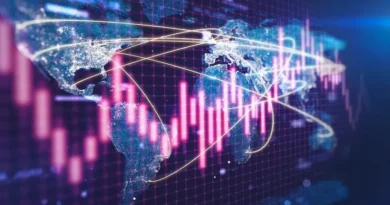The Malaysia-Japan axis is strengthening: this is how Tokyo tries to stop China in Asia
Japan and Malaysia have signed an important agreement in recent days which provides for an upgrade of their global strategic partnership.
The largest part of the agreement includes a grant worth 400 million yen (equal to approximately 2.8 million dollars) that Tokyo will put on the table to strengthen Kuala Lumpur's maritime security.
All in line with a regional trend that sees a growing number of Asian nations committed to countering China's rise in the Indo-Pacific by forming partnerships with the US or its partners.
Specifically, Japan will provide Malaysia with equipment such as lifeboats and supplies under the official security assistance agreement, signed by the foreign ministers of the two countries on the sidelines of the Tokyo summit.
A summit marking 50 years of ties between Japan and the Association of Southeast Asian Nations (ASEAN).
The elevation of bilateral relations from the current strategic partnership, formed in 2015, “marks a new chapter in Malaysia-Japan bilateral ties.
Malaysia is confident that this renewed commitment will lead to even closer cooperation and greater benefits for both countries,” read a statement released by the Malaysian Foreign Ministry.
read also Japan's eyes on Central Asia: why Tokyo is also focusing on the "-stans" Japan's move As highlighted by Reuters, Japan's aid to Malaysia follows similar agreements signed by Tokyo with the Philippines and Bangladesh.
These moves are part of a plan announced in the spring by the Japanese government to provide developing countries with financial assistance to strengthen their anti-Chinese defenses.
The agreement with Malaysia, in any case, represents the latest fruit of the Japanese Overseas Security Assistance (OSA) program, which, as The Diplomat highlighted, was announced for the first time in the revision of the strategy of Japanese national security at the end of last year.
The security agreement came after Kishida's state visit to Malaysia in early November, when the Japanese prime minister and his Malaysian counterpart Ibrahim Anwar confirmed that they would "accelerate coordination for the implementation" of OAS programs.
Now the sides have agreed to further strengthen cooperation in the maritime field, including joint training and exchanges between the Japan Self-Defense Forces and the Malaysian Armed Forces, as well as joint training between the coast guard agencies of the two countries.
read also Investment and diplomacy: US-China head-to-head moves to Southeast Asia Southeast Asia target Under the OAS plan, Japan will help recipient nations strengthen their defenses in a significant break with norms existing in the country, in force since World War II, which prohibit the use of international aid for military purposes.
In a statement released in April, the Japanese Ministry of Foreign Affairs said that Tokyo would improve its security and deterrence capabilities, and that the OAS would aim to deepen security cooperation with foreign countries, “to create a desirable security environment for Japan." While the OAS cannot be used to purchase lethal weapons that recipients could use in conflicts with other countries, it can still be used to strengthen communications and surveillance systems.
In addition to Malaysia, the first recipients of the OAS include the Philippines, Bangladesh and Fiji, all strategically located nations that face challenges to their maritime security, particularly from China.
Japan's security agreement with Malaysia follows a similar agreement with the Philippines, which Kishida visited in early November.
During his trip there, the Japanese leader and President Ferdinand Marcos Jr.
expressed their shared concerns about "unacceptable attempts" to "unilaterally change the status quo by force" in the East and South China Seas.
Last but not least, Tokyo is making efforts to strengthen its relations with Vietnam, recently visited by Xi Jinping.
Late last month, the Japanese government announced an upgrade of its relations with Hanoi towards a comprehensive strategic partnership.
Yet another attempt designed to create a diplomatic network with which to trap the Dragon.




